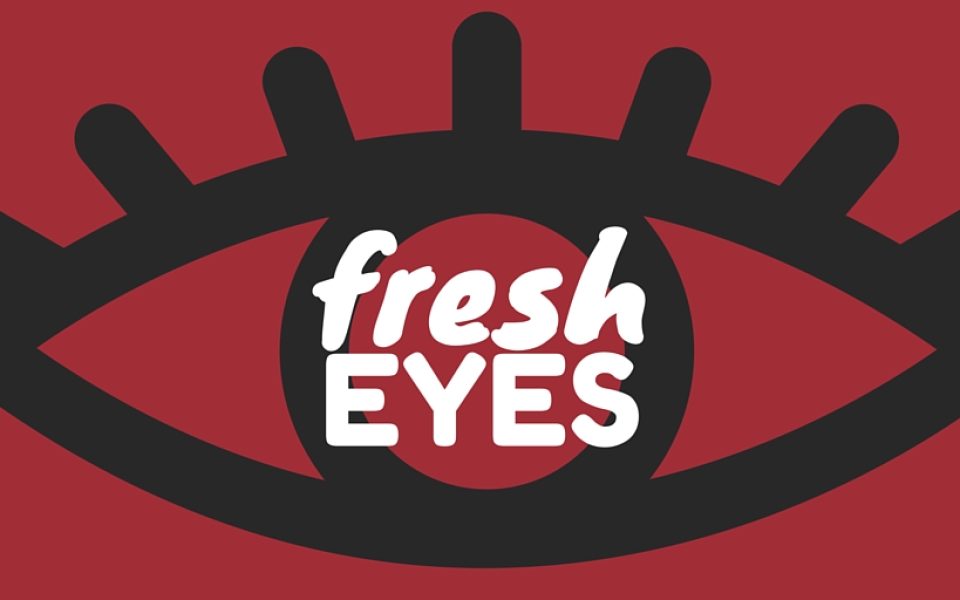 by Stephen McCollum
by Stephen McCollum
The tension between conservationists and mountain bikers over access to the Rich Fork Preserve in north High Point continues to generate heat. Toward a fair solution we could imagine a fare venture. Both sides of the table could be seated at a new restaurant, the Rich Fork. Proceeds from the menu featuring locally sourced food — for vegetarians and carnivores — would be split evenly with half supporting the original intention for the preserve (foot traffic only) and half aiding the cyclists toward finding a less fragile site to spin their wheels.
If both groups could staff the Rich Fork, working side by side in search of a common goal, they would learn that while all food is capable of providing some nourishment, not all foods taste well together — even when served under the same management. Translation: While the Rich Fork Preserve may be capable of providing some satisfaction for everyone’s taste, it is likely to be more savory following a specific recipe.
Remember the dictum, “Think global, act local”? One reason humans haven’t been able to come to grips with the threat of climate change is because, well, we’ve been thinking and behaving as humans. Too many of us act locally, all too often at the expense of the global good. It’s natural in our culture for one person’s freely styled self-interest to trump another’s. While we may be able to agree that something harmful is happening to the planet, no one likes the idea that they could be an accessory to the fact until or unless others ’fess up also. And even when a viable alternative appears — in the case of climate, renewable energy — it’s harder than it seems to ease off the gas and believe the battery can do the work.
Mountain bikes in the Rich Fork Preserve are analogous to too much fossil fuel emissions for planet Earth. It’s not that cars are evil; it’s just that along with all the other sources of greenhouse gases, they have been too much for too long. It’s not that bicycles per se are evil; it’s just that both practically and symbolically they are too much for this place and this time. Practically they do not honor the principles by which the Rich Fork Preserve came to be an urban oasis. And symbolically, or perhaps more ironically, how bizarre that a mode of transportation that has the potential to deliver so much green benefit when properly used should take on the profile of a menace when arrogantly pursued as entertainment in a pristine ecological context.
While a metaphorical breaking of bread at the Rich Fork may be far-fetched, there is a genuine business context for appreciating what is at stake. As host of the International Home Furnishings Market, High Point is justifiably proud of its heritage as a furniture capital of the world. That history owes much to human ingenuity and enterprise, but how foolish and short-sighted of us to not bow to the true resource of the market — trees. To avoid turning the massive and humanly engineered complex in downtown High Point into a symbol of hubris, we would be well intentioned to balance all that steel, glass, and concrete with the preservation of a symbol of equal power and might. There is such a symbol just a short bike ride from downtown.
Stephen McCollum lives in Greensboro.
Join the First Amendment Society, a membership that goes directly to funding TCB‘s newsroom.
We believe that reporting can save the world.
The TCB First Amendment Society recognizes the vital role of a free, unfettered press with a bundling of local experiences designed to build community, and unique engagements with our newsroom that will help you understand, and shape, local journalism’s critical role in uplifting the people in our cities.
All revenue goes directly into the newsroom as reporters’ salaries and freelance commissions.


I’m struggling with some of the poor similes in the article. It seems everyone wants to depict the Rick Fork “Preserve” as a natural oasis in the middle of High Point and in reality it is a tract of land that has been used for various purposes over the years and a large portion was recently logged. I also find the comparison of bicycles to fossil fuels in poor taste. The whole debate is juvenile and both user groups should be able to exist with minimal impact to one another.